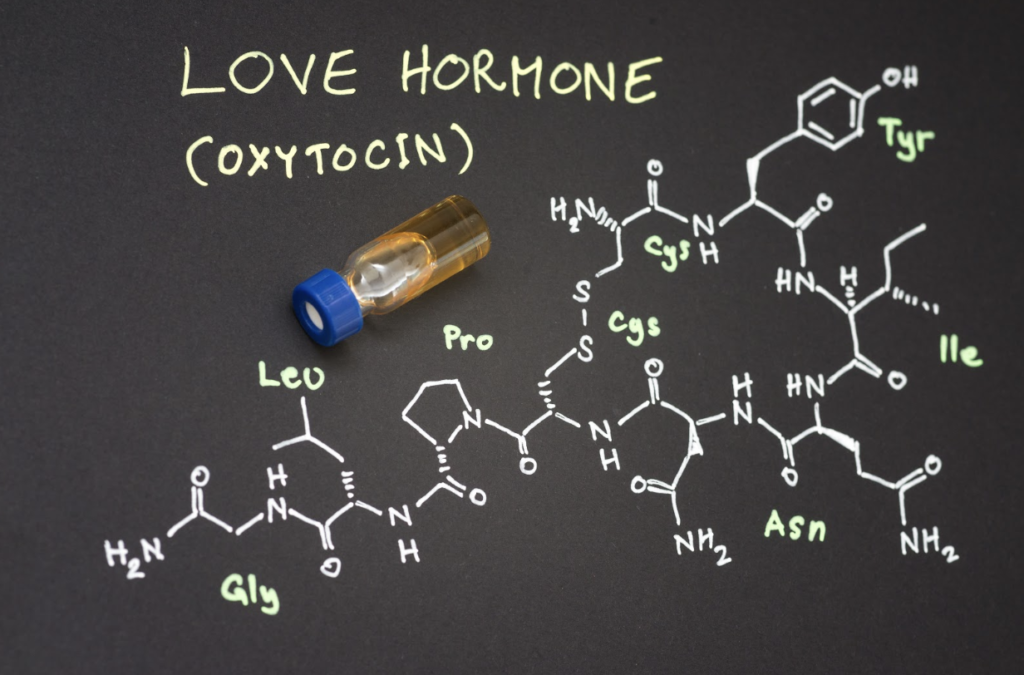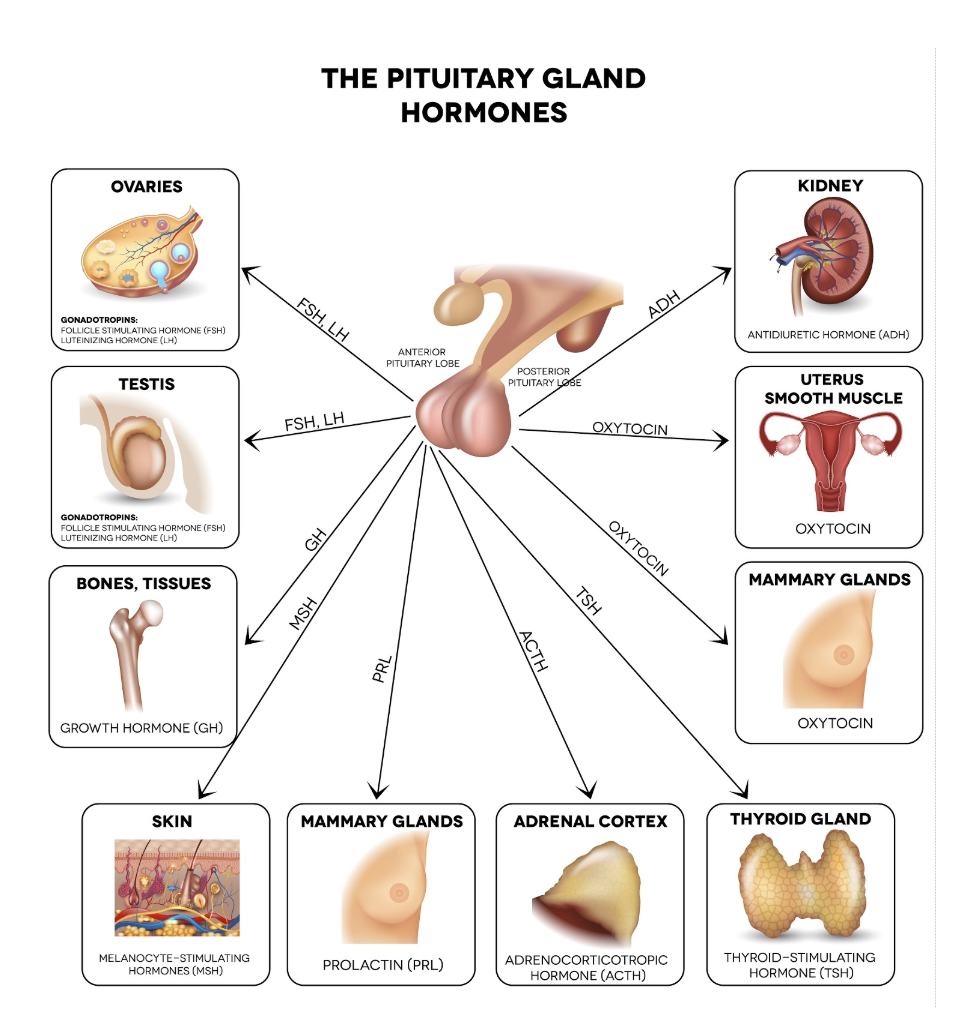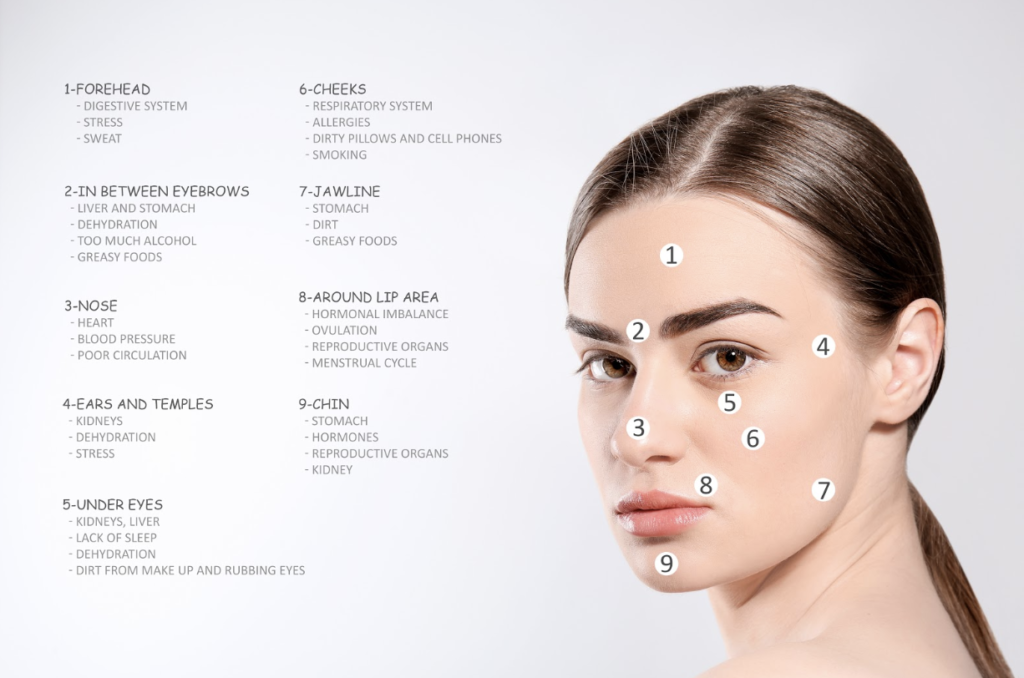Having a healthy sex life may lead to better sexual, mental, and even skin health as there are many health benefits of orgasms. Besides feeling really good, have you ever thought about what the Big O can do for you?
Orgasms contribute to stress relief, better skin quality, and an increase in estrogen.
Benefits of Orgasms
Besides the pleasure it brings, having orgasms comes with plenty of health benefits for the body. Orgasms are often referred to as the “peak of sexual excitement.” An orgasm is a powerful feeling of physical sensation and pleasure.
Men and women experience orgasms in different ways. During female orgasm, there is increased blood flow and the uterus contracts and the woman experiences a great feeling of pleasure. Females also experience an increase in their heart rate, breathing and blood pressure.
Afterwards, the female body will return to its former, yet more relaxed state, and breathing slows.
The male orgasm lasts from approximately 10 to 30 seconds, while a female orgasm can last up to 50 seconds. Men have a recovery period after orgasm, which varies by age and from person to person, while women typically do not have a recovery period and can have more than one orgasm when stimulated again.
During the male excitement period before orgasm, there is an increase of blood flow and men also experience a rise in blood pressure, breathing and pulse rate. For men once orgasm occurs, semen, a mixture of sperm and fluid are pushed into the urethra through contractions in the pelvic floor muscles and prostate gland.
Both men and women may experience the many health benefits of orgasms, which include:
- Solidifying relationships
- Easing stress
- Boosting sexual health and arousal
- Bolstering self esteem
- Inducing sleep
- Decreasing acne
- Increasing estrogen
Decreased Stress & Better Sleep
People often feel a sense of calm after having sex, but do orgasms actually lower your stress levels?
A lot of it comes down to oxytocin, a hormone often referred to as the “love hormone”. This hormone is produced by the hypothalamus, a small region of the brain, near the pituitary gland that is responsible for things like releasing hormones and regulating body temperature. Oxytocin is released into the bloodstream during orgasm, alongside endorphins.
When both endorphins and oxytocin are released together, they can cause sedation, contributing to better sleep. If a person is well-rested, their immune system can be stronger, and they can have more energy during the day.
Oxytocin, dopamine, and serotonin are often referred to as “happy hormones,” as positive emotion is often caused by these hormones. Oxytocin can have a positive impact on relaxation, trust, and psychological stability.
“Brain oxytocin modulates social behaviors, including maternal care and aggression, pair bonding, sexual behavior, social memory and support, and human trust, and downregulates stress responses, including anxiety,” one study says.
Another study on the role of oxytocin in obsessive-compulsive disorder suggests that OCD may be mediated by oxytocin, improving cognitive and behavioral symptoms.
Low levels of oxytocin in the bloodstream can cause high levels of stress and tension, and stress is often linked to inflammation. Some studies suggest that oxytocin and other hormones released during sex could potentially protect against cancer and heart disease.
Prolactin, another hormone released during orgasm, is important for both male and female reproductive health. The release of prolactin is linked to the feeling of sexual satisfaction and a decrease in stress. In women, another function of prolactin is to promote milk production.
Another study linked sexual activity to relief from migraines and cluster headaches. These painful headaches are often triggered by stress. 70% of those observed reported moderate to complete relief from migraines, and 91% reported moderate to complete relief in cluster headaches.
It is possible that even a person’s general well-being could be improved from having an active sex life. A 1997 study suggests that the mortality risk was lower in men with a high frequency of orgasm rather than men with a low frequency.
Reduced Acne and Stress Related Skin Disorders
As we know, orgasming causes an oxytocin release in the brain, lowering stress levels… But how do orgasms affect skin health?
Studies have proven that female orgasm releases hormones that benefit skin, boost blood circulation, and lower cortisol levels. Cortisol is a stress hormone that can accelerate the aging process and break down elastin and collagen.
Stress has the ability to cause skin disorders like rosacea and psoriasis, as well as your everyday bout of acne. By having orgasms, one may be able to experience stress relief and decreasing stress may be powerful enough to reduce acne and stress related skin disorders.
Additionally, research shows that there is a strong connection between fatigue and the presence of acne, so frequent sex and a good night’s sleep could lead to a clearer complexion.
Increased Estrogen
Producing more estrogen is beneficial to skin health because it can help aging skin. Orgasms raise the levels of estrogen in the body. Estrogen, a woman’s sex hormone, is important for sexual and reproductive development.
Having higher levels of estrogen in the body can promote lubrication and increase sexual desire, while an increase in progesterone can reduce desire. Estrogen levels will often depend on where a woman is in her menstrual cycle.
Increased estrogen in the body may play a role in preventing collagen from decreasing. According to a 2007 study, “Estrogens have significant effects on skin physiology…skin aging can be significantly delayed by the administration of estrogen.”
Higher levels of estrogen also helps to maintain skin thickness and elasticity and lock in moisture. This will help in avoiding fine lines and wrinkles. However, just having high estrogen comes with its own caveats. Be sure your estrogen is in balance with your other hormone levels like progesterone and testosterone as some health issues may occur with high estrogen levels and other hormone imbalances. Consult with an experienced integrative or functional medicine board-certified hormone physician who is familiar with the intricacies of your hormone balance to find what supplements and prescriptions are best for you!
In Summary
- Having frequent orgasms can lead to improving the health of your skin and lower your stress levels.
- While men and women may experience orgasm in different ways, they can each experience health benefits.
- The sex hormone, oxytocin, plays a huge part in decreasing stress. The combination of this hormone and endorphins can contribute to better sleep and a stronger immune system. This “happy hormone” can have a positive impact on relaxation and psychological stability.
- The release of oxytocin during orgasm can also help to promote better skin health, as it decreases inflammation and cortisol levels.
- Estrogen, an important hormone for sexual and reproductive health, is produced during orgasm. Estrogen is responsible for increased sexual desire, as well as maintaining collagen.
Sources
- Brody, S. (2010). The relative health benefits of different sexual activities. The journal of sexual medicine, 7(4), 1336-1361. Full Text: https://www.researchgate.net/profile/Stuart_Brody/publication/41101274_The_Relative_Health_Benefits_of_Different_Sexual_Activities/links/5b5acb80a6fdccf0b2f92715/The-Relative-Health-Benefits-of-Different-Sexual-Activities.pdf
- Uvnas-Moberg, K., & Petersson, M. (2005). Oxytocin, a mediator of anti-stress, well-being, social interaction, growth and healing. Z Psychosom Med Psychother, 51(1), 57-80. Abstract: https://www.ncbi.nlm.nih.gov/pubmed/15834840
- Amir, S., Brown, Z. W., & Amit, Z. (1980). The role of endorphins in stress: Evidence and speculations. Neuroscience & Biobehavioral Reviews, 4(1), 77-86. Abstract: https://www.ncbi.nlm.nih.gov/pubmed/6250104
- Uvnäs-Moberg, K., Ahlenius, S., Hillegaart, V., & Alster, P. (1994). High doses of oxytocin cause sedation and low doses cause an anxiolytic-like effect in male rats. Pharmacology Biochemistry and Behavior, 49(1), 101-106. Abstract: https://www.ncbi.nlm.nih.gov/pubmed/7816858
- Neumann, I. D. (2007). Oxytocin: the neuropeptide of love reveals some of its secrets. Cell metabolism, 5(4), 231-233. Abstract: https://www.cell.com/cell-metabolism/fulltext/S1550-4131(07)00069-1?_returnURL=https%3A%2F%2Flinkinghub.elsevier.com%2Fretrieve%2Fpii%2FS1550413107000691%3Fshowall%3Dtrue
- Leckman, J. F., Goodman, W. K., North, W. G., Chappell, P. B., Price, L. H., Pauls, D. L., … & Cohen, D. J. (1994). The role of central oxytocin in obsessive compulsive disorder and related normal behavior. Psychoneuroendocrinology, 19(8), 723-749. Abstract: https://www.ncbi.nlm.nih.gov/pubmed/7991761
- Liu, Y. Z., Wang, Y. X., & Jiang, C. L. (2017). Inflammation: the common pathway of stress-related diseases. Frontiers in Human Neuroscience, 11, 316. Full Text: https://www.ncbi.nlm.nih.gov/pmc/articles/PMC5476783/
- Gutkowska, J., Jankowski, M., & Antunes-Rodrigues, J. (2014). The role of oxytocin in cardiovascular regulation. Brazilian Journal of Medical and Biological Research, 47(3), 206-214. Full Text: https://www.ncbi.nlm.nih.gov/pmc/articles/PMC3982941/
- Torner, L. (2016). Actions of prolactin in the brain: from physiological adaptations to stress and neurogenesis to psychopathology. Frontiers in endocrinology, 7, 25. Full Text: https://www.ncbi.nlm.nih.gov/pmc/articles/PMC4811943/
- Hambach, A., Evers, S., Summ, O., Husstedt, I. W., & Frese, A. (2013). The impact of sexual activity on idiopathic headaches: An observational study. Cephalalgia, 33(6), 384-389. Abstract: https://journals.sagepub.com/doi/abs/10.1177/0333102413476374
- Smith, G. D., Frankel, S., & Yarnell, J. (1997). Sex and death: are they related? Findings from the Caerphilly cohort study. Bmj, 315(7123), 1641-1644. Full Text: https://www.bmj.com/content/315/7123/1641
- Hamilton, L. D., Rellini, A. H., & Meston, C. M. (2008). Cortisol, sexual arousal, and affect in response to sexual stimuli. The journal of sexual medicine, 5(9), 2111-2118. Full Text: https://www.ncbi.nlm.nih.gov/pmc/articles/PMC2703719/
- Chiu, A., Chon, S. Y., & Kimball, A. B. (2003). The response of skin disease to stress: changes in the severity of acne vulgaris as affected by examination stress. Archives of dermatology, 139(7), 897-900. Abstract: https://www.ncbi.nlm.nih.gov/pubmed/12873885
- Misery, L., Wolkenstein, P., Amici, J. M., Maghia, R., Brenaut, E., Cazeau, C., … & Taïeb, C. (2015). Consequences of acne on stress, fatigue, sleep disorders and sexual activity: a population-based study. Acta dermato-venereologica, 95(4), 485-488. Abstract: https://www.ncbi.nlm.nih.gov/pubmed/25365961
- Stevenson, S., & Thornton, J. (2007). Effect of estrogens on skin aging and the potential role of SERMs. Clinical interventions in aging, 2(3), 283. Full Text: https://www.ncbi.nlm.nih.gov/pmc/articles/PMC2685269/





